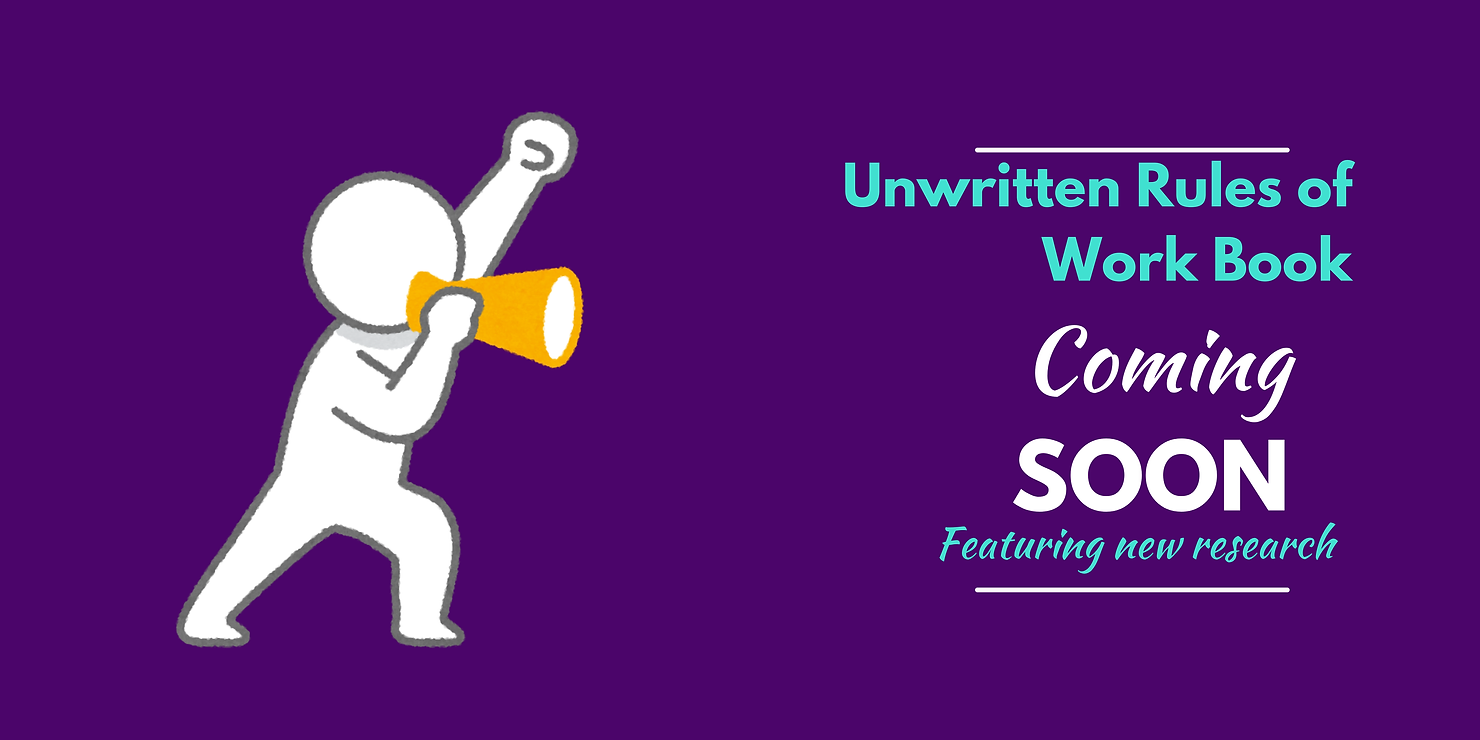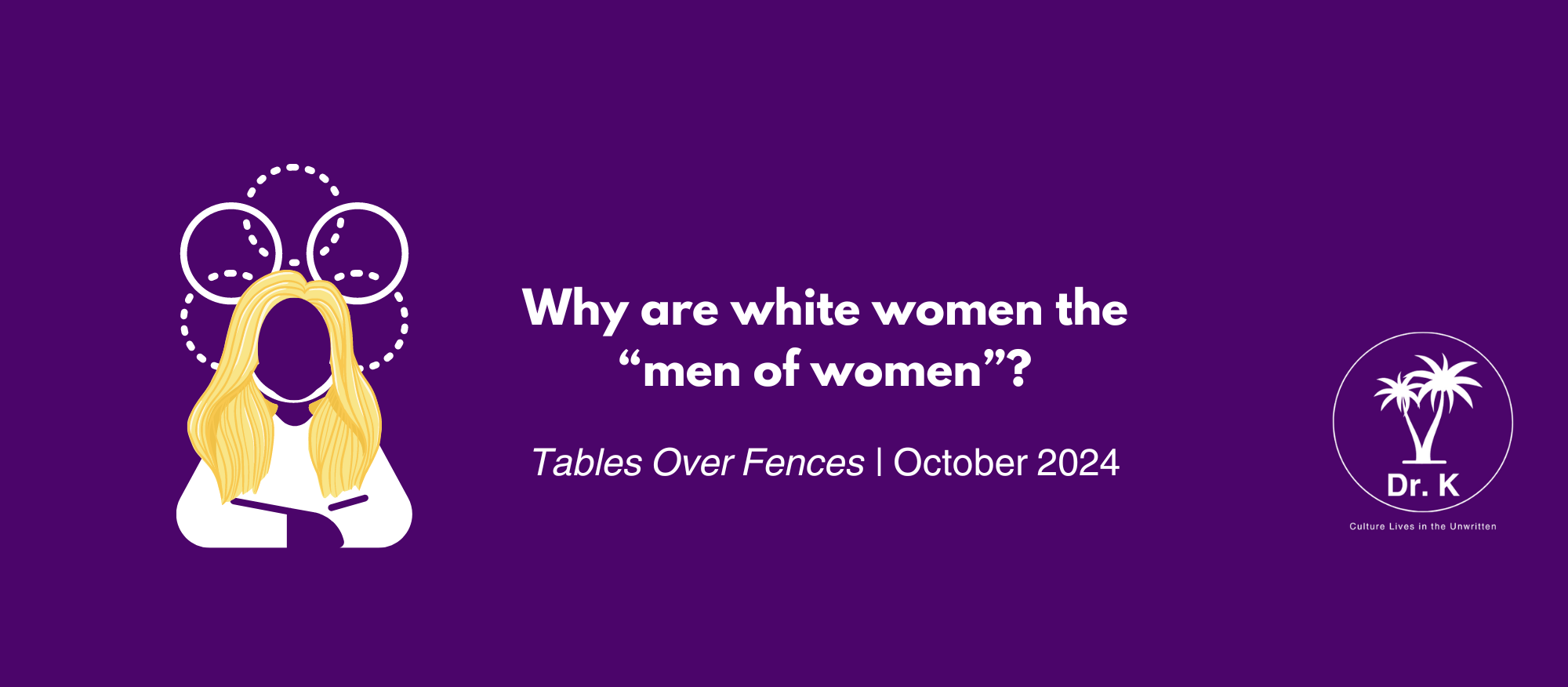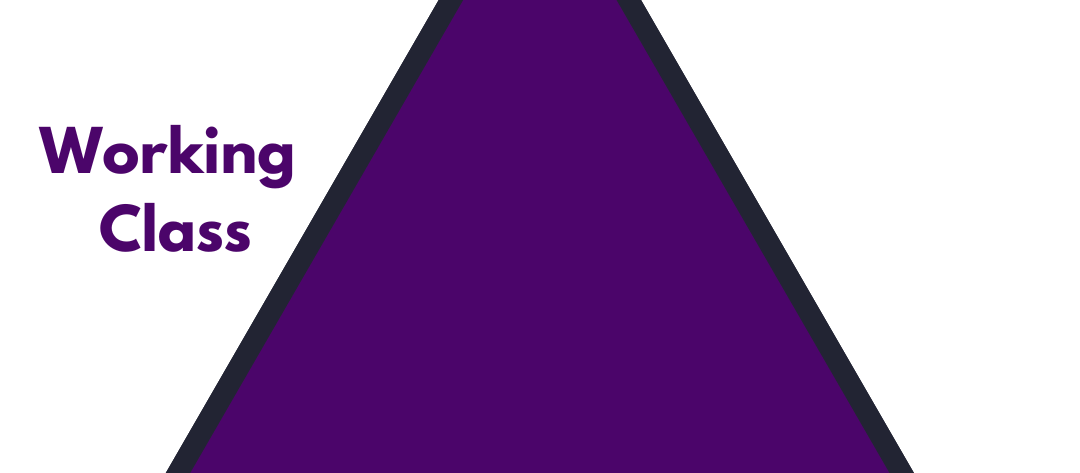Why I No Longer Tell anybody to “Be Professional.”
2 years ago

When I started my Ph.D. in Industrial-Organizational (I-O) psychology, I learned about task performance and contextual performance. Task performance is what is written in your job description. On the other hand, contextual performance is the often voluntary nontechnical behaviors that are not directly related to job tasks (mainly interpersonal behaviors, see here) but significantly impact the organization.
As someone who playfully identifies as a little bit redneck…I was concerned. I was not from a place with many white-collar work environments. I did not know what the expectations would be for behaviors that weren’t written in job descriptions.
I kept asking questions in class and pawing through our textbooks looking for what these contextual performance behaviors specifically were. The descriptions I found of “interpersonal relationships” and “citizenship performance” felt so broad to me.
I remember thinking, “if part of my job performance is not written down, how am I supposed to know to do it?”
But I also noticed other things. I didn’t seem to say things quite right. My colorful southern sayings and twangy voice seemed to alarm people. I was frequently told it was surprising how direct I was or how firmly I shook someone’s hand. Nobody else in my classes or at conferences seemed to have this question. How did they already know what to do? Why didn’t this bother them? Or did it bother them, and one of the rules was that we weren’t supposed to ask to begin with?
I took myself to our university’s career center, and I was the only Ph.D. student at most, if not all, of the workshops I attended. How did everyone already know this career stuff? Between the workshops and my own growing knowledge organizations, jobs, and hiring systems blossomed, and I started to piece together how to get into these white-collar environments. These understandings informed my first LinkedIn article, which snowballed into the professional development workshop I’ve delivered many times at Stanford, FIU, and my research lab. What did I learn from the demand for these materials?
It wasn’t just me.
My first post discussed how culture is water, not an iceberg. For my trainees and I, we were in bodies of water we did not recognize. When you’re in an environment that wasn’t built by people like you, you don’t know the rules of the environment. And the authors of the environment likely do not know how to articulate these rules because they assumed they were just “normal” and nobody needed an explanation. When people enter new water, they are often only given two options – get out of the water or learn how to swim.
These observations and questions led to what eventually became my dissertation, investigating what are the unwritten rules of work for people who come from low-income backgrounds, and how do these rules and their consequences differ between and within Black and White women and men?
I trained up a team of research assistants (RAs) and we interviewed 64 Black and White women and men from low-income backgrounds who had worked in the southern U.S. Every single one of them agreed there were unwritten rules in the workplace. As we predicted, which rules they experienced, and if/how there were negative consequences, were different between groups.
We identified seven groups of cultural norms that served as unwritten rules for our respondents, and many said these rules changed as they moved up further in their organizational status.
As they moved up into higher-class environments, our participants noticed:
More stress on independent values than interdependent ones
Show deference and compliance with authority
Confusion in navigating workplace friendships (are people trying to be my friend or foe?)
Expectation to speak indirectly, instead of directly, about issues
Phony socialization, or having to handle people with “kid gloves” to not offend
The need to play political games
Navigating being assertive but not perceived as aggressive (but this was only for participants who were not White men)
To some of you, these might seem like “no brainers,” and in that case...simply recognize that you are working somewhere that shares your cultural water. That’s okay! I only ask that you realize that is not the case for everyone. The issue is that when you onboard to places like this, nobody says “Okay, when you work here we expect you to be complicit, schmooze, speak indirectly, and play political games.” That’s not a sexy onboarding process. Instead, when we’re onboarded we are told that we “expect everyone to behave professionally” and that’s where the water gets murky.
So instead of telling people to be professional when they work for me, I tell them very explicitly what I am expecting. For example, when I asked my consulting team to create a draft of a product (i.e., a newsletter, a toolkit, a placemat), did I set clear expectations of what I wanted? Am I assuming they know what fonts and styles I consider professional vs. not? Do they know when I expect to see the first draft? Have I communicated the tone/voice of the product that the clients will expect? How formal do they have to be? Am I assuming they come from a family that taught them the version of language that the client is expecting?
To have water that we all want to swim in, we have to talk to each other about what the water is. Who does it nourish? Who does it hurt? To help you do this, I have made an Unwritten Rules of Work Reflection Sheet for middle managers who want guidance on how to define “professionalism” with their teams. Here’s a sneak peak!

More blogs
Emotional Intelligence at Work: Why Are World Leaders on the Epstein List?
“I don’t think I’ve ever even heard of a single person who thinks all leaders are evil and pursuing career […]
How to Deal with a Bully Boss: When Your Boss Feels Threatened By Your Success
You’re lying awake at 2 AM running through every interaction from the past month. Your boss has been distant. Cold, […]
Can a business ethically exist under capitalism?
How I navigate the contradictions of doing social class work within capitalism—and what I’m actually doing about it I’ve been […]
Book Retreat Hiatus
Book Retreat Hiatus Social Class 3 semanas ago When the universe is ready for you, it’ll knock you onto your […]
Why are white women the “men of women”?
Why are white women the “men of women”? Social Class 3 months ago Last month I talked about how economic […]
Is inequality really about social class, not race?
Is inequality really about social class, not race? Social Class 3 semanas ago Class has been at the center of […]
The Universal Language of Ignored Problems: What Your Ex-Boss and Ex-Boyfriend Have in Common
The Universal Language of Ignored Problems: What Your Ex-Boss and Ex-Boyfriend Have in Common Social Class 5 hours ago “Why […]
Tips for Navigating Polarization at Work – From Independence Day to Election Day
Tips for Navigating Polarization at Work – From Independence Day to Election Day Social Class 5 hours ago Growing up, […]
Unlearning Homophobia, Learning Inclusion: A Leader’s Journey Toward a More Equitable Workplace
Unlearning Homophobia, Learning Inclusion: A Leader’s Journey Toward a More Equitable Workplace Social Class 5 hours ago It’s Pride Month, […]








